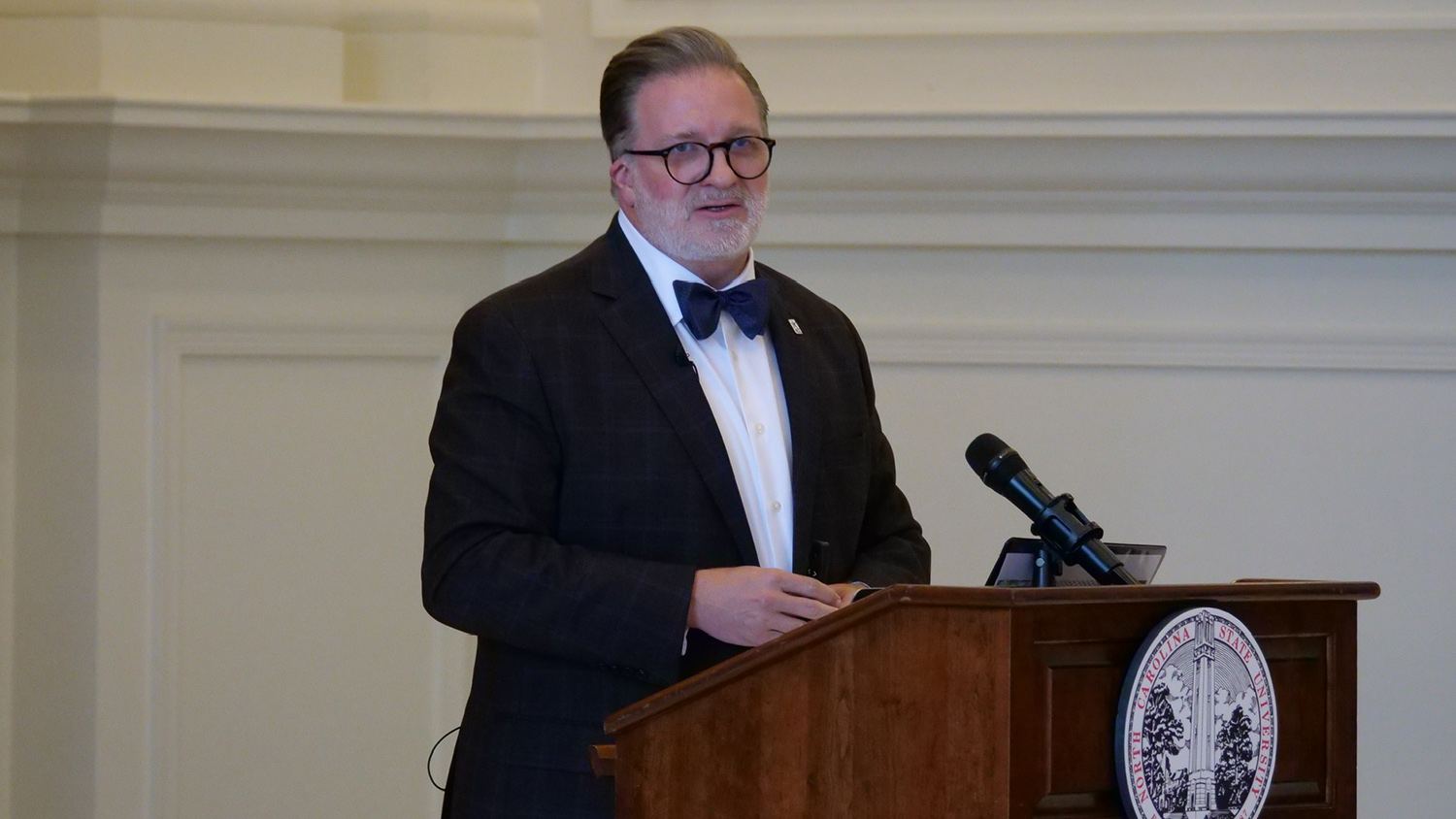Rawn Boulden will join the NC State College of Education in the 2024-25 academic year as an assistant professor in counselor education.
Boulden, who earned his Ph.D. in counselor education and supervision from Old Dominion University, most recently served as an assistant professor of school counseling at West Virginia University. Prior to that, he was a school counselor in Virginia and provided outpatient counseling services to youth and adolescents in the Greater Morgantown, West Virginia, region.
Learn more about Boulden below:
The following Q&A has been edited for length and clarity.
Why did you choose a career in education?
I chose a career in counseling and counselor education because I wanted to make an impact on others’ lives. I have always had a knack for supporting others through life’s ebbs and flows, listening effectively, and supporting children and young adults in both K-12 and higher educational settings. Education has long been considered a gateway to ensuring that people possess the requisite knowledge, skills and values in today’s global society, laying the foundation for a lifetime of learning and personal growth. When the opportunity to enter the education field arose, I excitedly took advantage of it.
What inspired you to pursue a doctoral degree?
I consider myself a lifelong learner, constantly exploring opportunities to enhance my knowledge base and acquire new skills. Thus, pursuing a doctoral degree in counselor education supported my desire to obtain a deeper level of understanding within the counselor education field. My decision to pursue doctoral work was also inspired by my full-time, post-master’s school counseling experience. While I enjoyed the meaningful work with students and school community members, this real-word experience illuminated my awareness of many research-to-practice gaps along with under-explored research directions in the field. Lastly, I wanted to play a pivotal role in not only counselor education research, but also preparing culturally-responsive, ethical and competent counselors equipped with the knowledge, skills and awareness to affect change in schools and communities.
What are your research interests?
My research interests include rural school counseling, culturally-sustaining practices and youth mental health. Relatedly, I am particularly interested in exploring interdisciplinary models that support effective school-based mental health teaming (e.g., school counselors, school social workers, school psychologists). Ultimately, through my research, I aspire to address real-word issues impacting youth and K-12 schools, collaborating with various partners to support improved student outcomes.
What sparked your interest in those topics?
My interest in these topics was sparked by two factors. Firstly, my work experience as a school counselor and a licensed professional counselor (LPC) in West Virginia helped paint a fuller picture regarding research gaps that exist within the counseling profession. This boots-on-the-ground experience increased the depth and breadth of my previous, present and future research endeavors. Secondly, serving as an assistant professor of school counseling at another institution for four years further honed my awareness of current and future issues. As a faculty member, publishing, attending national conferences, procuring federal grants involving K-12 schools, staying current on counseling-related scholarship and connecting with new and old colleagues on professional issues largely impacted my research interests.
What is one moment or project in your academic career that you are particularly proud of?
I am particularly proud of the work I completed in West Virginia as principal investigator to address youth mental health needs and school-based mental health shortages in the Mountain State. As PI on two large, complex federal grants, I successfully spearheaded the rollout and implementation of projects that can potentially save lives. Through our SAMHSA-funded grant, we provided free youth mental health first aid to educators in the state, teaching them the signs and symptoms of mental health challenges and how they can support a child who may be experiencing a mental health challenge or crisis. Further, through our DoED-funded grant, we increased the yield of culturally-responsive, school-based mental health providers in high-need schools throughout West Virginia, in close collaboration with school district partners. I’m proud of the work conducted in West Virginia and I look forward to engaging in similar efforts at NC State.
What is your teaching philosophy?
Firstly, my teaching philosophy prioritizes active learning in the classroom. I have found that learning is accentuated by “doing” through interactive and collaborative approaches. Students should have opportunities, both in and out of class, to reflect on their learning, including their personal areas for improvement. Further, I aim to co-create an environment inclusive of varying perspectives and lived experiences, increasing students’ cognitive complexity while expanding their worldviews. These efforts support students’ attainment of critical skills needed when working with a broad array of individuals and communities.
What do you hope your students will learn from you?
I hope my students will learn the importance of being lifelong learners, continually seeking new knowledge and skills to adapt to evolving student needs and counseling practices. Further, I hope students understand the importance of fundamental counseling tenants such as active listening, validation and empathy, which can serve as the bedrock for a strong therapeutic alliance. I hope students will learn self-care’s critical importance in the counseling profession, and that they will use their time in our counseling program as a laboratory for both established and new techniques to tend to one’s well being. Finally, I hope that students recognize the impact that they can make on the trajectory of the students they will serve.
What do you believe makes an extraordinary educator?
An extraordinary educator believes in each child’s limitless potential. Furthermore, they help foster safe, affirming and supportive school environments wherein students can thrive and feel included. Importantly, they understand the importance of human connection and develop authentic relationships with students and school community members, engendering a whole- child approach to learning and student success.
- Categories:


